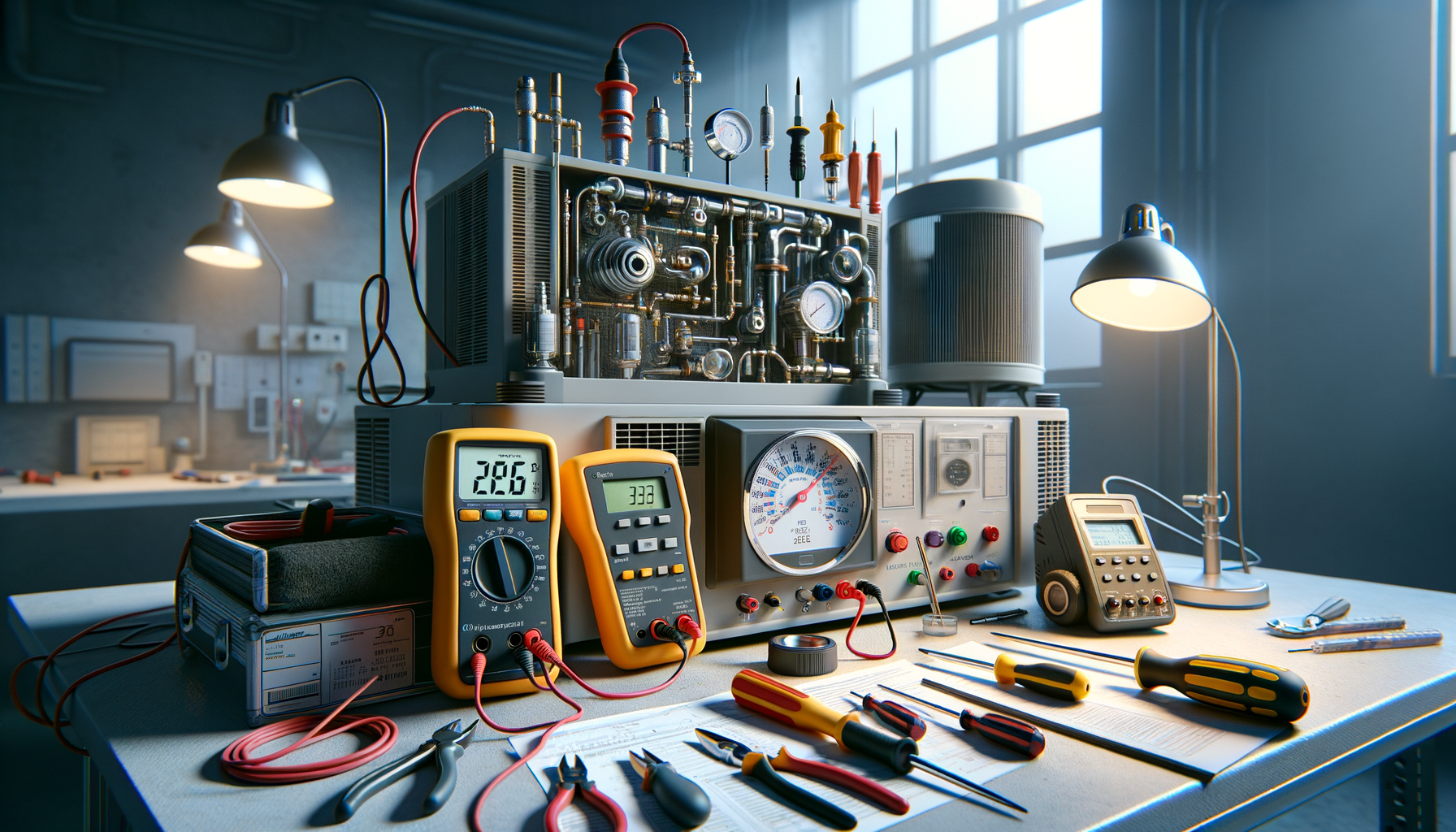
HVAC Technician Training in the U.S. — Start Building Real Skills
Understanding the HVAC Industry
The HVAC (Heating, Ventilation, and Air Conditioning) industry is a vital component of modern infrastructure, ensuring comfort and air quality in residential, commercial, and industrial settings. As buildings become more complex and environmentally conscious, the demand for skilled HVAC technicians continues to grow. According to the U.S. Bureau of Labor Statistics, employment of HVAC technicians is projected to grow by 4% from 2019 to 2029, reflecting the increasing need for energy-efficient systems and the replacement of older units. This growth presents a promising opportunity for individuals interested in pursuing a career in this field.
HVAC technicians are responsible for installing, maintaining, and repairing heating, cooling, and ventilation systems. Their work is crucial in ensuring that these systems operate efficiently and safely. With the rise of smart technologies, technicians are also expected to be proficient in integrating and troubleshooting advanced HVAC controls. This evolution in technology requires continuous learning and adaptation, making training programs essential for anyone looking to enter or progress in the field.
Moreover, the HVAC industry is not just about technical skills. It requires a blend of problem-solving abilities, customer service skills, and a strong understanding of safety protocols. Technicians often work in diverse environments, from residential homes to large commercial facilities, requiring them to adapt to different work conditions and client needs. This variety can make the job both challenging and rewarding, offering a dynamic work experience that is never monotonous.
Pathways to Becoming an HVAC Technician
Embarking on a career as an HVAC technician typically involves a combination of formal education and hands-on training. There are several pathways one can take to enter the field, each offering unique advantages depending on individual preferences and circumstances.
One common route is enrolling in a technical or community college where students can earn an associate degree or a certificate in HVAC technology. These programs usually cover essential topics such as thermodynamics, refrigeration, electrical systems, and safety procedures. The duration of these programs can vary, with certificate courses often taking less than a year, while associate degrees may require two years of study.
Apprenticeships offer another viable pathway, combining on-the-job training with classroom instruction. Apprenticeships typically last three to five years, allowing aspiring technicians to work alongside experienced professionals while earning a wage. This hands-on approach can be particularly beneficial, as it provides real-world experience and the opportunity to apply theoretical knowledge in practical settings.
Additionally, some individuals may choose to enter the field directly by securing entry-level positions that offer on-the-job training. While this route may take longer to advance in the field, it can be a suitable option for those who prefer learning through direct experience rather than formal education.
Regardless of the chosen pathway, obtaining certification is often a critical step. Certifications, such as those offered by the North American Technician Excellence (NATE) or the Environmental Protection Agency (EPA), can enhance job prospects and demonstrate a technician’s commitment to maintaining industry standards.
The Importance of Continued Education and Certification
In the rapidly evolving HVAC industry, continued education and certification are not just beneficial—they are essential. As technology advances, new systems and components are introduced, requiring technicians to stay informed and adept in their skills. Continuing education ensures that technicians remain competitive and capable of handling modern HVAC technologies and methodologies.
Certification plays a crucial role in establishing a technician’s credibility and expertise. For instance, obtaining an EPA certification is mandatory for technicians who handle refrigerants. This certification ensures that technicians understand environmental regulations and can safely manage substances that could harm the atmosphere if mishandled. Furthermore, certifications from organizations like NATE validate a technician’s proficiency in specific areas, such as air conditioning, heat pumps, or gas furnaces.
Beyond mandatory certifications, many technicians pursue additional credentials to specialize in areas like green technologies or advanced HVAC controls. These specializations can open doors to higher-paying positions and leadership roles within companies. Employers often look favorably on technicians who demonstrate a commitment to learning and professional growth, as it reflects a dedication to providing high-quality service and staying abreast of industry trends.
Moreover, continued education and certification contribute to personal growth and job satisfaction. Technicians who are well-equipped with the latest knowledge and skills are more confident in their abilities, leading to improved job performance and client satisfaction. This, in turn, can lead to career advancement and a more fulfilling professional life.


